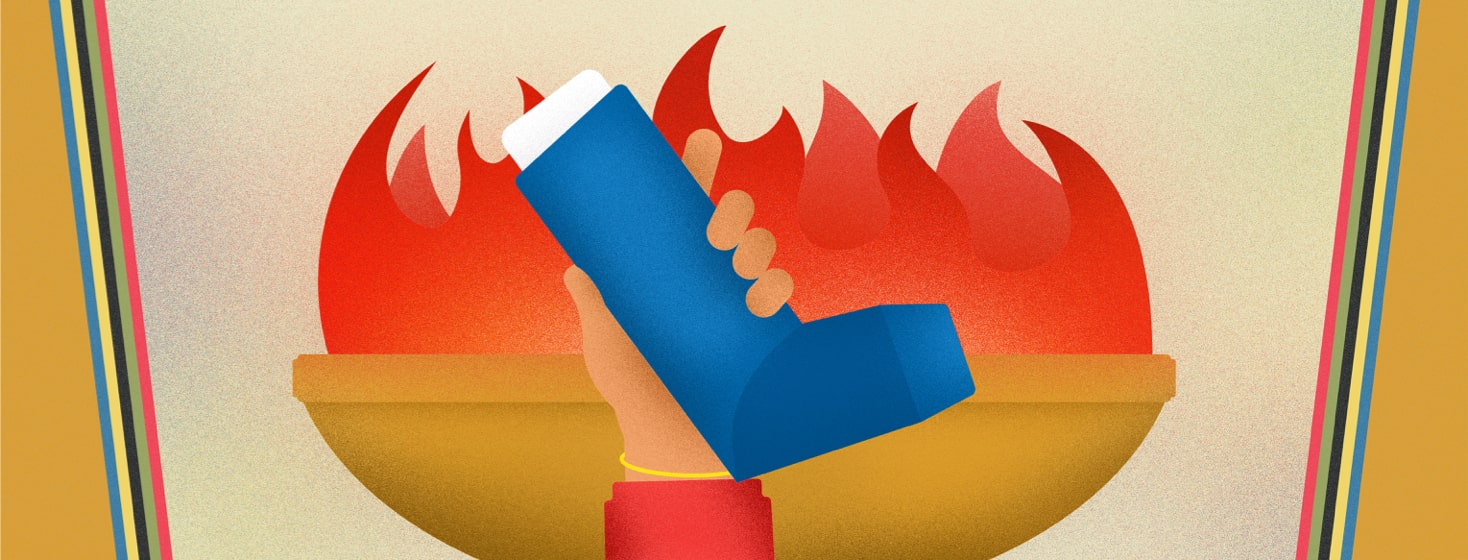Olympic Athletes and Asthma
I am watching the U.S. Figure Skating Championship on TV. This competition decides who gets to represent the U.S. in the Winter Olympics. I was an ice skater back in the 80’s, but my athletic ability was nothing compared to what the skaters do now. I am amazed by the complexity of their routines!
Imagine training for decades only to have a few short minutes to show you are the best in the world. But what if you have asthma? And your lungs decided to act up right then?
Can you be an athlete when you have asthma?
When I teach families about asthma, I will sometimes have a parent tell me that their child cannot run, play soccer, ride bikes, etc, because that child has asthma. I teach families that exercising is important to keep their lungs healthy. I also show them photos of various professional athletes with asthma, including some Olympic athletes.
If Olympic athletes can train every day for decades, there is no reason those of us with asthma cannot walk around the block, ride bikes, play soccer, ice skate, ski, etc.
Did you know that asthma is the most common chronic condition among Olympic athletes? 8% of Olympic athletes have asthma (which is the same as the U.S. average). 1,2
Asthma triggers in the Olympics
- Exercise is a common asthma trigger. It is sometimes called exercise-induced asthma or exercise-induced bronchoconstriction. How can Olympic athletes compete if exercise will make their asthma worse?3
Using a daily controller inhaler will help keep the swelling down in their lungs. It can also help if athletes have a good warm-up before they start training. And if their doctor prescribes it, they can "pre-medicate” by using their rescue/reliever inhaler before they compete.3
When my daughter was a high school athlete, the asthma doctor told her to pre-medicate before she competed. She KNEW she would have an asthma attack, so it helped to pre-treat her lungs.
- Cold temperatures – some people are surprised to learn that cold temperatures can be an asthma trigger. Cold weather can trigger an asthma attack. But so can eating and drinking cold food or drinks (ice cream, yogurt, smoothies, etc.) This is one of my worse asthma triggers!
- Change in temperature - our lungs do not like change. A change in temperature or humidity can make asthma lungs cranky. Imagine being an Olympic athlete, sitting beside a cozy fire - and then you hit the ice for an ice-skating routine or hockey game. Or going from a toasty warm lodge to the top of a mountain to ski. Your lungs may not like being warm and cozy and suddenly breathing in cold air.
- Respiratory infections - there is no such thing as a simple cold when you have asthma. Colds can morph into bronchitis or pneumonia. They have health and safety precautions in place in the Olympic village where the athletes stay, but when you bring people together from all over the world, they bring their germs with them. Can you imagine training for decades, and then getting sick and being unable to compete? Or not being able to compete at your best?4
I continue to be amazed by Olympic athletes. And especially proud of those that compete with the added worry of asthma.
Remember, if they can compete at a global level with asthma, we can walk around the block or go for a bike ride. No excuses!
Of course, your exercise choices are up to you and your healthcare provider, based on your individual needs.

Join the conversation